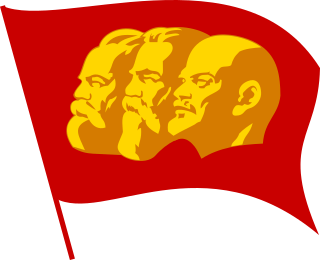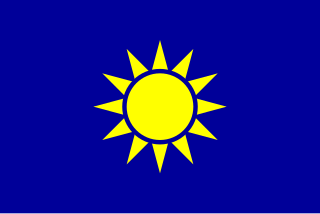
The Vietnamese Fatherland Front is an umbrella group of mass movements in Vietnam aligned with the Communist Party of Vietnam forming part of the Vietnamese government. It was founded in February 1977 by the merger of the Vietnamese Fatherland Front of North Vietnam and two Việt Cộng groups, the National Liberation Front of South Vietnam and the Alliance of National, Democratic and Peace Forces of Việt Nam. It is an amalgamation of many smaller groups, including the Communist Party itself. Other groups that participated in the establishment of the Front were the remnants of the Việt Cộng, the Vietnam General Confederation of Labour, the Ho Chi Minh Communist Youth Union and the Ho Chi Minh Young Pioneer Organization. It also included the Democratic Party of Vietnam and Socialist Party of Vietnam, until they disbanded in 1988. It also incorporates some officially sanctioned religious groups.

The flag of Vietnam, or "red flag with a gold star", was designed in 1940 and used during an uprising against French rule in southern Vietnam that year. Red symbolizes the goals of social revolution behind the Vietnamese national uprising. The star represents the five main classes in Vietnamese society—intellectuals, farmers, workers, businesspeople and military personnel.
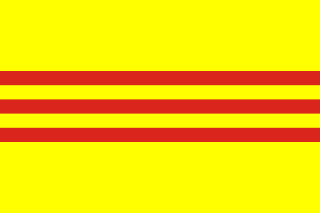
The Government of Free Vietnam was an unrecognized government in exile of a hypothetical Republic of Vietnam. It was an anti-communist political organization headquartered in the U.S. cities of Garden Grove, California and Missouri City, Texas.
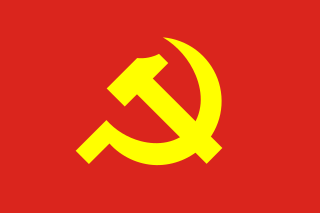
The Indochinese Communist Party was a political party which was transformed from the old Vietnamese Communist Party in October 1930. This party dissolved itself on 11 November 1945.

The Empire of Vietnam was a short-lived puppet state of Imperial Japan governing the whole of Vietnam between March 11 and August 23, 1945.
Nguyễn Hải Thần was a leader of the Việt Nam Cách Mạng Đồng Minh Hội and a political leader during the Vietnamese Revolution. In 1905, he left Vietnam to study at military academies first in Japan then in China as part of Phan Bội Châu's Đông-Du Movement. In 1912, he joined Châu's Vietnam Restoration League and became one of its representative in Kwangsi and one of its most capable military leaders.

Nguyễn Phú Trọng is a Vietnamese politician who is the current General Secretary of the Communist Party of Vietnam, in office since 19 January 2011, and President of Vietnam, de jure head of state of Vietnam, in office since 23 October 2018.

The Personalist Labor Revolutionary Party, often simply called the Can Lao Party, was a Vietnamese political party, formed in early 1950s by the president of Republic of Vietnam Ngô Đình Diệm and his brother as well as the adviser of the regime, Ngô Đình Nhu.

The Nationalist Party of Greater Vietnam, often known simply as Đại Việt or DVQDD, was a nationalist and anti-communist political party and militant organisation that was active in Vietnam in the 20th century. The party continues to be active outside of Vietnam, with the goal of a multi-party democratic government for the country.
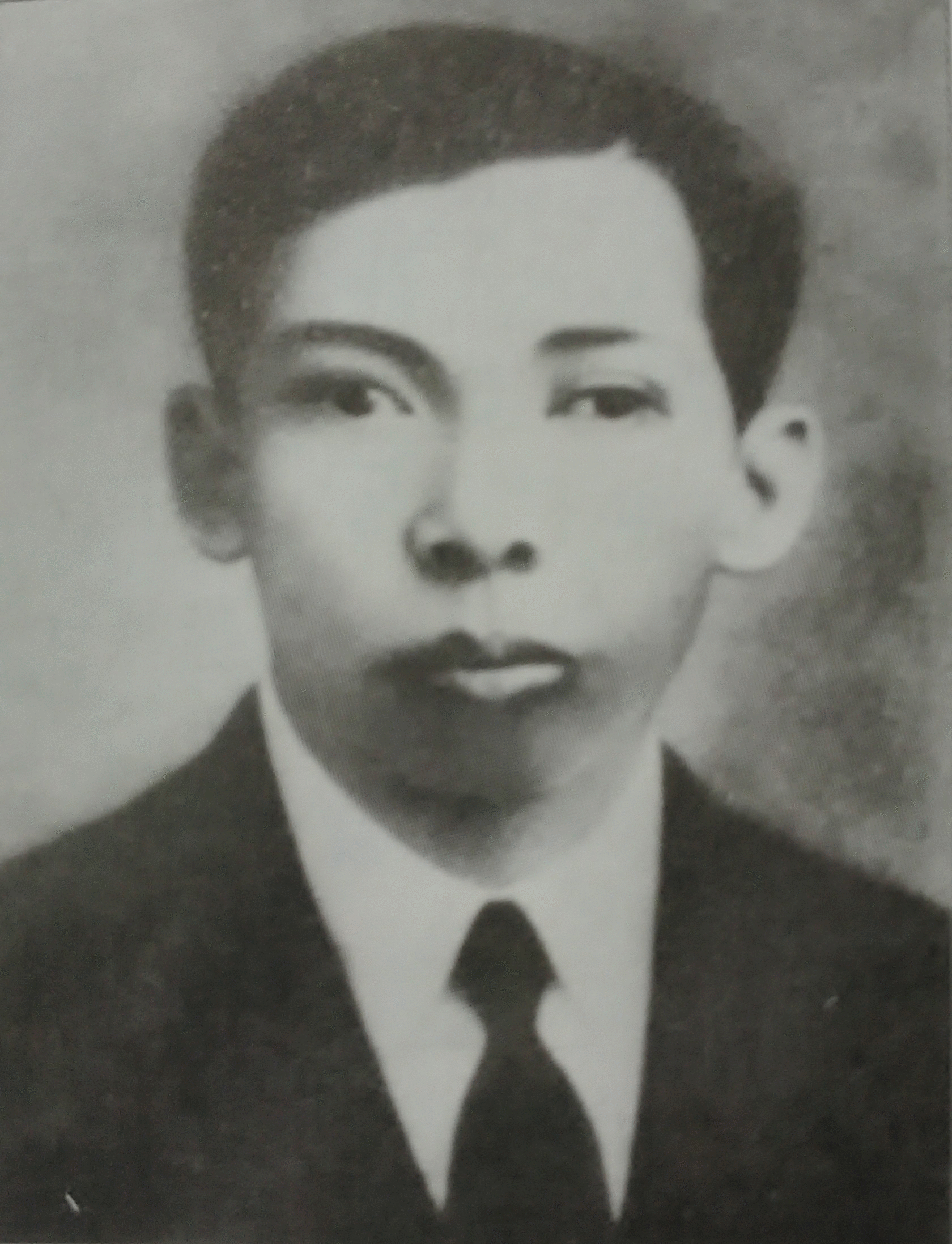
Trần Phú was a Vietnamese revolutionary and the first general secretary of the Indochinese Communist Party, later renamed to Communist Party of Vietnam.
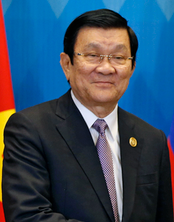
Trương Tấn Sang is a Vietnamese politician, who served as the seventh President of Vietnam from 2011 to 2016. He was one of Vietnam's top leaders, alongside prime minister Nguyễn Tấn Dũng and Party general secretary Nguyễn Phú Trọng. In July 2011, Trương Tấn Sang was elected state president of the Socialist Republic of Vietnam by the National Assembly of Vietnam and nominated by his predecessor Nguyễn Minh Triết who retired from office.

Trần Văn Cung was a Vietnamese revolutionary, who was the secretary of the first communist cell in Vietnam.
Tạ Phong Tần is a Vietnamese dissident blogger. A former policewoman and a member of the Communist Party of Vietnam, she was arrested in September 2011 on anti-state propaganda charges for her blog posts alleging government corruption. On 30 July, Tạ Phong Tần's mother Dang Thi Kim Lieng immolated herself in front of the government offices in Bạc Liêu Province in protest of the charges against her daughter. On 24 September 2012, Tạ Phong Tần was sentenced to ten years in prison. Her arrest was protested by groups including the Office of the United Nations High Commissioner for Human Rights, the US State Department, Amnesty International, and Human Rights Watch.

Political organizations and Armed forces in Vietnam, since 1912 :
The Indochinese Communist League was one of the three communist groups of 1929–1930 which formed the base of the Vietnamese Communist Party in Vietnam, and within colonial French Indochina.
The Tân Việt or New Vietnam Revolutionary Party or Revolutionary Party of the New Vietnam 1925-1930, was a non-communist revolutionary party in Vietnam's early independence movement founded by Nguyễn Thị Minh Khai (1910–1941). It incorporated the Hội Phục Việt of Trần Phú.
Vũ Hồng Khanh born Vũ Văn Giảng (武文講), was a Vietnamese revolutionary of the Việt Nam Quốc Dân Đảng faction.


